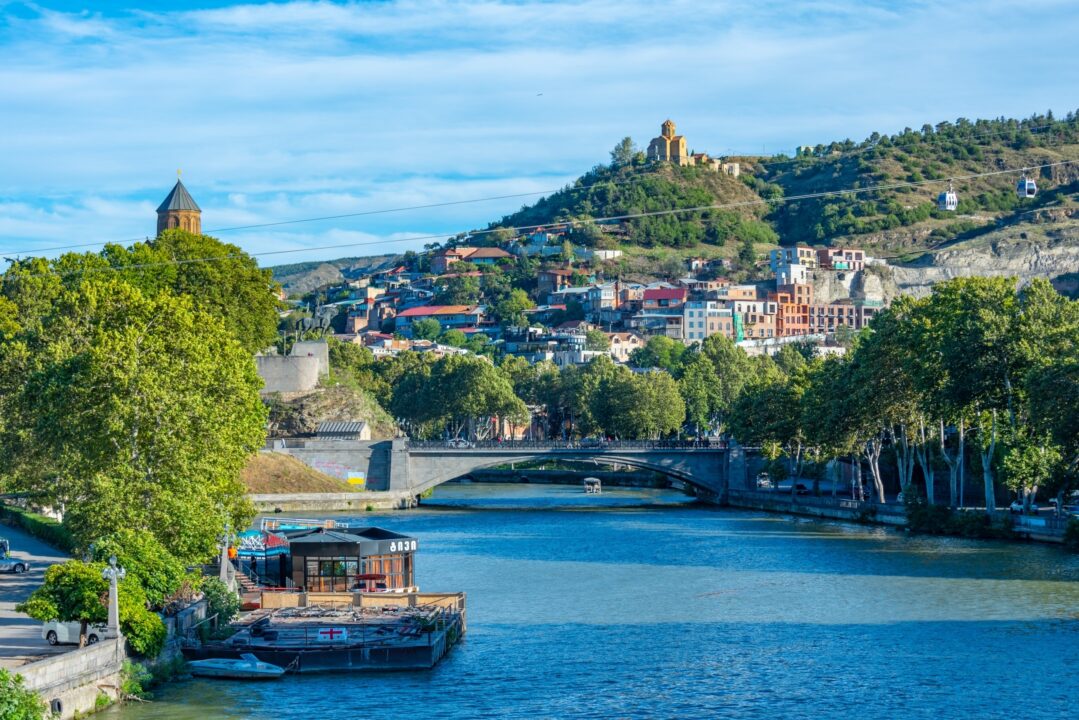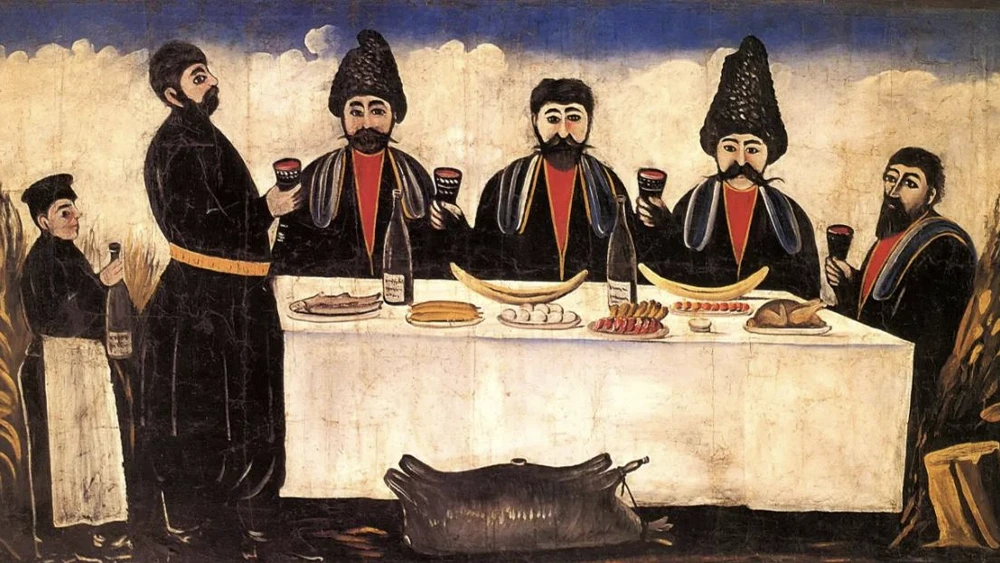Unveiling Georgia: A Journey to the Heart of the Caucasus and the Soul of Tbilisi – Georgia Tourism Unpacked
The global map, a tapestry of nations and cultures, holds a particular allure in regions where continents converge. It is in such a vibrant crossroads that we find Georgia, a country whose name increasingly resonates within the circles of discerning travelers. But where is Georgia, this land of ancient traditions and dynamic modernity? It rests at the intersection of Eastern Europe and Western Asia, cradled by the Greater Caucasus Mountains to the north and the Lesser Caucasus to the south, with the Black Sea gracing its western shores. This strategic positioning has not only shaped its diverse landscapes but also forged a unique cultural identity that is profoundly captivating for those seeking authentic experiences.

Understanding how Georgia is for Tourism requires an appreciation for its multifaceted appeal. It’s a destination that defies easy categorization, offering a rich spectrum of attractions. Imagine towering mountain peaks, some perennially snow-capped, giving way to lush valleys carpeted with vineyards – a testament to its claim as the birthplace of wine, with an 8,000-year-old continuous winemaking tradition. Ancient cave cities, like Vardzia and Uplistsikhe, whisper tales of a resilient past, their rock-hewn chambers a marvel of human ingenuity. Medieval fortresses and monasteries, many perched dramatically on hilltops or nestled in secluded valleys, stand as silent witnesses to a history deeply intertwined with Orthodox Christianity. Beyond the historical and the scenic, Georgia offers a vibrant contemporary culture, warm hospitality that is legendary, and a culinary scene that is both comforting and revelatory.

The country’s natural beauty is a significant draw. From the Black Sea coastal city of Batumi, with its modern architecture and botanical gardens, to the rugged, untamed wilderness of Svaneti and Tusheti, home to ancient stone towers and breathtaking hiking trails, the diversity is astounding. The climate is equally varied; the west enjoys subtropical influences, while the east experiences a more continental climate. This allows for a year-round tourism season, with spring (May-June) and autumn (September-October) often cited as ideal for pleasant weather, perfect for exploring both urban and natural landscapes. Concerns about safety are understandable for any emerging destination, but Georgia generally enjoys a reputation as a safe country for travelers, with low crime rates, particularly in tourist areas. As with any travel, standard precautions are advisable, but the overriding experience for most visitors is one of welcome and security. Beyond the initial impressions of safety and scenic allure, the depth of Georgia Tourism truly reveals itself in the array of distinct experiences available across its diverse regions. Consider, for instance, the Kakheti region, the undisputed heartland of Georgian viticulture. Here, you can immerse yourself in the ancient qvevri winemaking tradition, visiting family cellars and larger estates alike, tasting amber wines fermented in subterranean clay vessels. For those with an adventurous spirit, the mountainous regions offer more than just breathtaking vistas; Gudauri and Bakuriani transform into bustling ski resorts in winter, while summer unlocks trails for challenging treks and paragliding opportunities with unparalleled views. Journey to the Imereti region to explore the Prometheus Cave, a subterranean wonderland of stalactites and stalagmites, or visit the serene Gelati Monastery, a UNESCO World Heritage site reflecting centuries of spiritual and intellectual life. Each corner of Georgia presents a different facet of its character, from the mineral-rich waters of Borjomi, famed for its health resorts, to the remote villages where ancient customs and dialects are meticulously preserved, offering a profound connection to a way of life that has endured for generations. This regional richness is fundamental to understanding how Georgia captivates the hearts of its visitors.
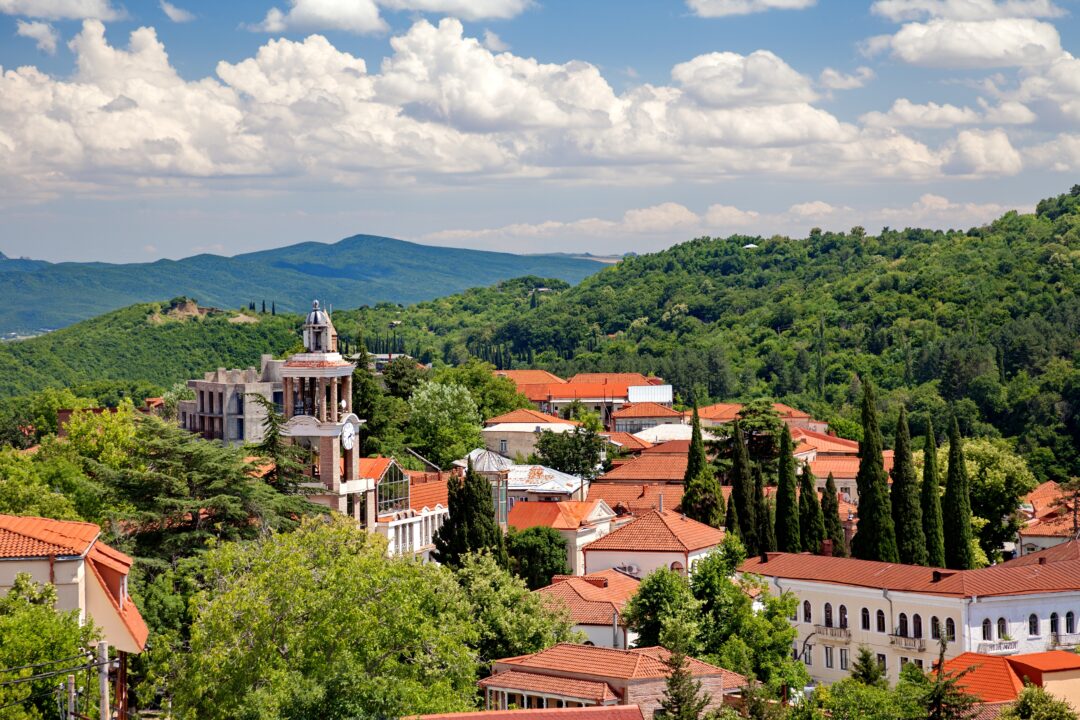
At the heart of Georgia Tourism lies its capital, Tbilisi. Tbilisi tourism is an experience in itself, a captivating blend of old and new, where centuries of history are palpable in the cobblestone streets of the Old Town (Kala). Here, colorful, balconied houses lean against each other, creating a picturesque labyrinth that invites exploration. Narikala Fortress, standing sentinel over the city since the 4th century, offers panoramic views that are especially magical at sunset. A cable car ride up to the fortress or to the iconic Kartlis Deda (Mother of Georgia) statue provides a stunning introduction to the city’s layout, bisected by the Mtkvari River.
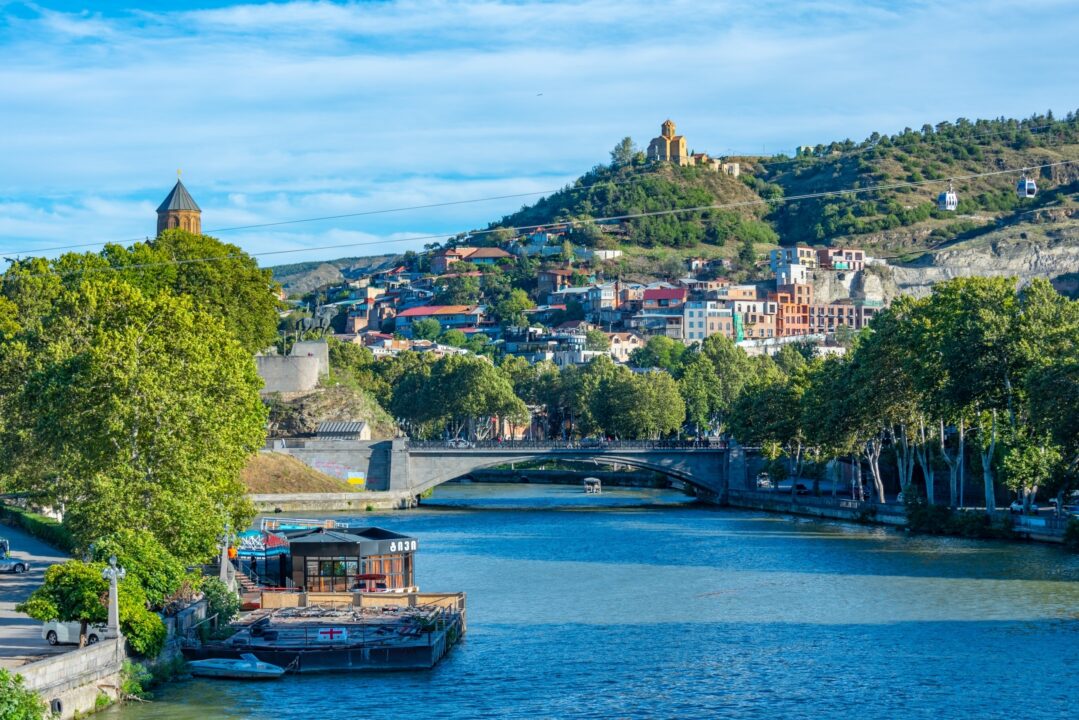
The spirit of Tbilisi is perhaps best encountered in its vibrant neighborhoods. The Abanotubani district, famed for its historic sulfur baths, offers a unique and rejuvenating experience. Legend has it that King Vakhtang Gorgasali, the founder of Tbilisi, was so impressed by the hot springs that he decided to build a city around them – indeed, “Tbilisi” translates to “warm location.” Strolling along Rustaveli Avenue, the city’s main thoroughfare, reveals grand opera houses, theaters, and museums, contrasting with the bohemian charm of areas like Fabrika, a former Soviet sewing factory transformed into a dynamic cultural hub with street art, cafes, and artisan shops.
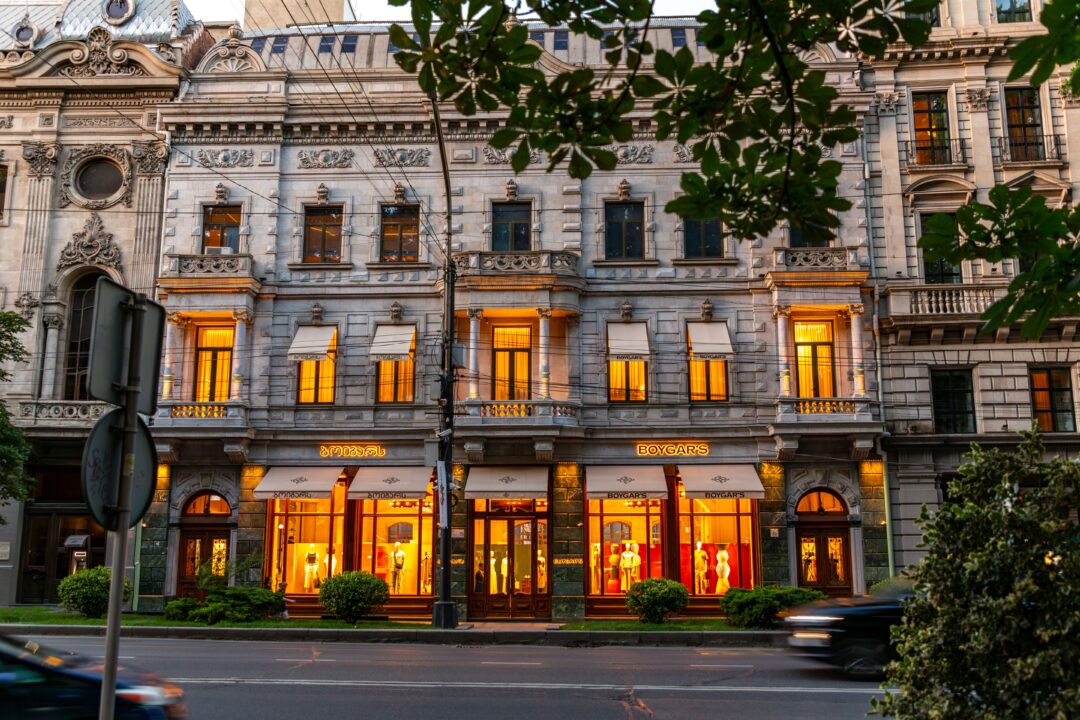
The culinary landscape of Tbilisi is a crucial part of its allure. Georgian cuisine is a celebration of fresh ingredients, bold flavors, and communal dining. The traditional feast, or supra, is an elaborate affair, guided by a toastmaster (Tamada), and laden with iconic dishes. Khachapuri, the beloved cheese bread, comes in many regional variations, with the Adjarian version – boat-shaped and topped with a raw egg and butter – being a particular favorite. Khinkali, savory dumplings typically filled with spiced meat or mushrooms, are another must-try. The use of walnuts, pomegranates, fresh herbs, and distinctive spices creates a unique and unforgettable gastronomic journey. Tbilisi’s food scene ranges from traditional family-run restaurants serving these age-old recipes to contemporary establishments offering modern interpretations and international cuisine.

As night falls, Tbilisi reveals another facet of its character. The city boasts a burgeoning nightlife scene, from cozy wine bars perfect for sampling Georgia’s diverse varieties to energetic clubs that draw international DJs and a lively local crowd. Areas around Shardeni Street and Erekle II Street in the Old Town are popular for their concentration of bars and restaurants with outdoor seating, while underground venues cater to a more alternative music scene.
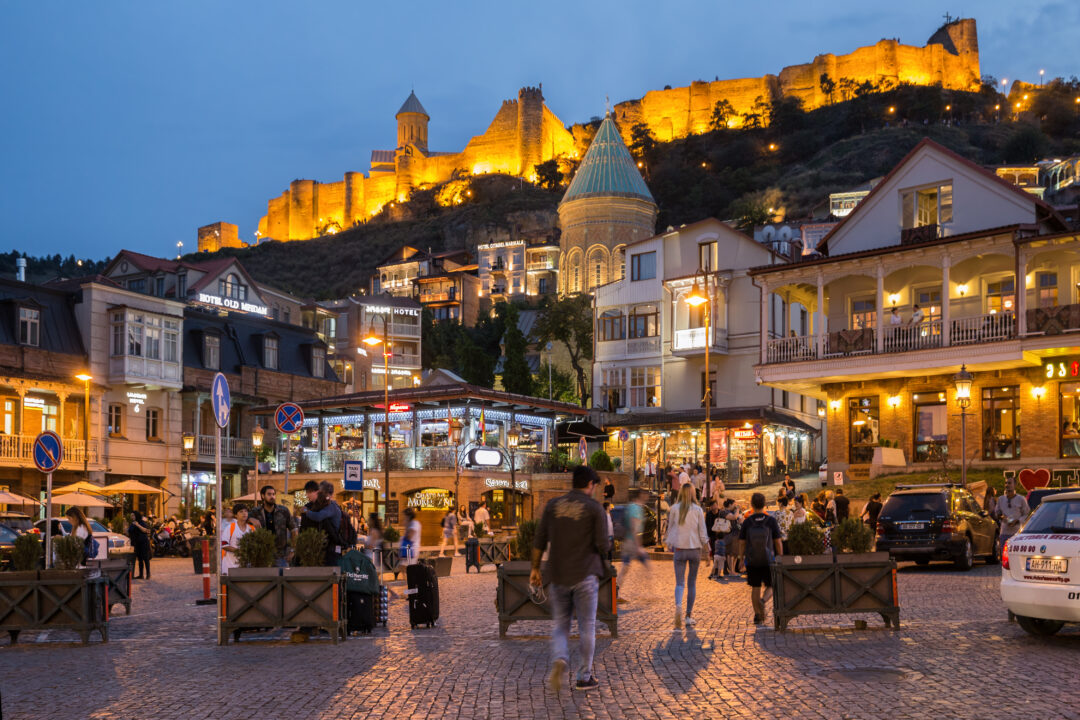
In essence, Georgia, and specifically Tbilisi, offers a journey that engages all the senses. It’s a place where the weight of history and the vibrancy of contemporary life are not in conflict but in conversation. The warmth of its people, the depth of its culture, the beauty of its landscapes, and the flavors of its cuisine combine to create a travel experience that is both enriching and deeply memorable. Whether you are a history enthusiast, a nature lover, a foodie, or simply a curious traveler seeking a destination that offers something beyond the conventional, Georgia extends a compelling invitation. The answer to “how is Georgia for Tourism?” is unequivocally positive, offering a profound and rewarding adventure for those willing to explore its many wonders. And for many, that exploration rightfully begins in the captivating embrace of Tbilisi.
We created Memo — a brand where Georgian memories come to life.
Visit Memo By GSH and take a piece of Georgia with you – Www.memories.ge

